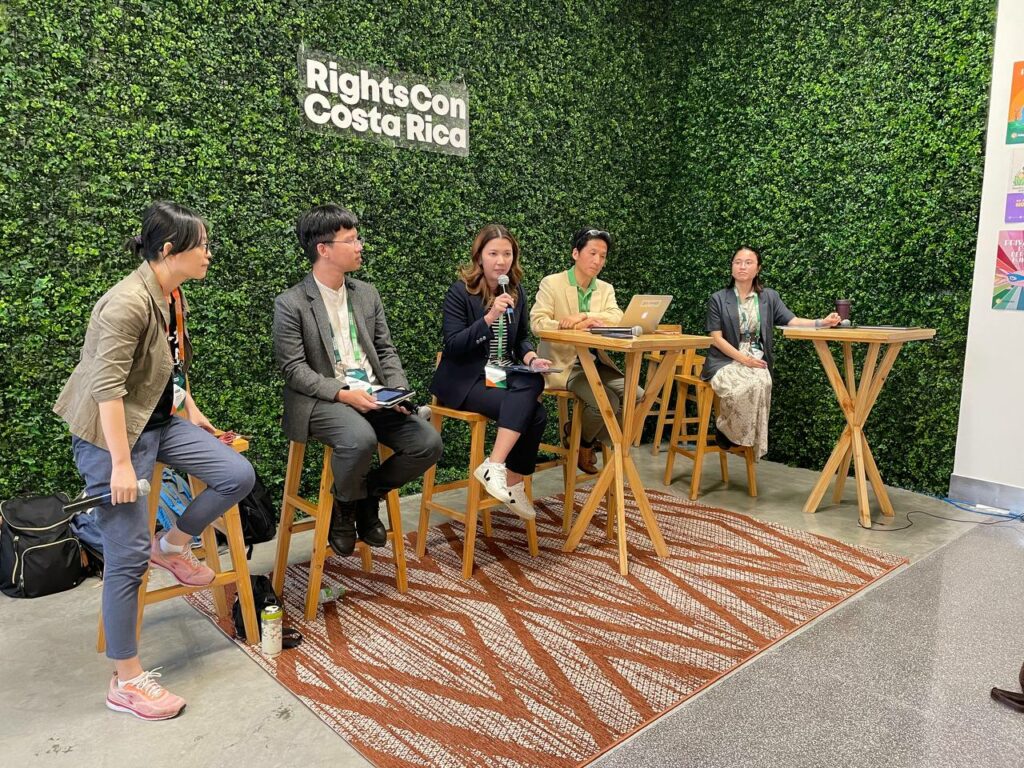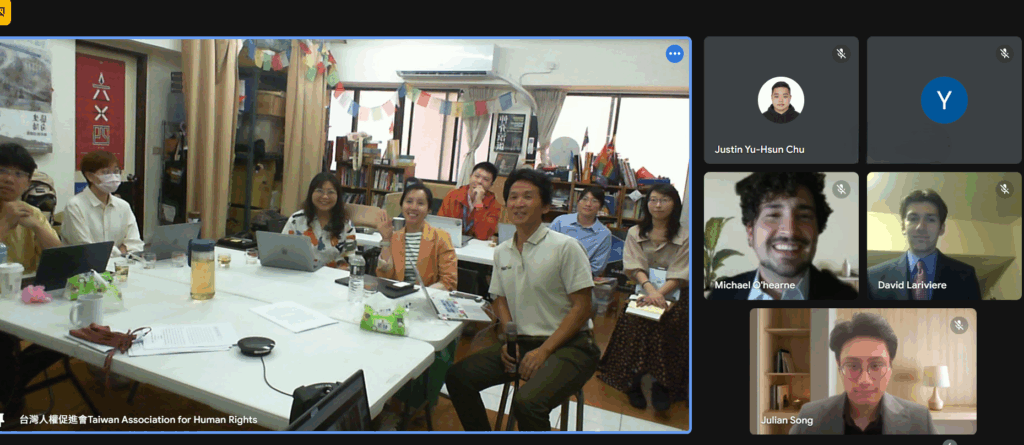Open Net co-hosted a session titled “How do activists take the private sector on board in promoting digital rights in Asia?” with Open Culture Foundation (Taiwan) on June 6, 2023 at 4:30 pm.

Many Asian countries have experienced a boom in the digital market, leading to tech giants at both regional and national level. The connectivity provided by a combination of privately owned digital platforms and telecommunications infrastructures have become increasingly essential for citizens across Asia in exercising various forms of rights. The emergence of a powerful digital private sector in Asia presents a complex landscape for activists promoting human rights and democracy. On the one hand, tech companies are facing increasing accountability demands for mass collecting personal data and controlling information access for profit. On the other hand, the autonomous online space provided by these companies must be safeguarded from government intrusion. In this session, activists from Korea, Taiwan, and Thailand discussed the importance and role of tech companies in guaranteeing digital rights and shared a story about what civil society has done and what activities they can do in the future to secure the accountability of companies in each country’s context.
Park Kyung-sin, director of Open Net Korea, mentioned the importance of public campaigns and shared examples of public campaigns and signature movements in which Open Net blocked the passage of a Network Usage Fee Law that can harm the net neutrality principle in South Korea. He mentioned that it was very difficult to convince the public that this law would undermine a free Internet environment in the long run explaining difficult concepts such as the principle of ‘Net Neutrality’ to the public and breaking through legislative lobbying and publicity of Korean telecom operators based on their strong resources . However, Open Net steadily produced and distributed public content such as webtoons and videos, and as YouTubers and influencers created related content, a large number of the public actively participated in the signature campaign against the bill, and the passage of the bill was dramatically blocked. He said civil society could use these public campaigning movements to keep tech companies in check.
Charles Mok, a former Hong Kong legislator and a visiting Scholar at the Cyber Policy Center at Stanford University, shared via online video connection the current situation in which the Hong Kong government is banning song content that was sung during the protests. And he emphasized the need for civil society to solidarity with Internet companies because Internet companies can be the last hope to guarantee civil liberties against government surveillance and censorship in an authoritarian regime.
Darika Bamrunnchok, a Digital rights specialist at Thai Netizen Network in Thailand, explained that “Digital Authoritarianism” is prevalent in Thailand and many authoritarian countries in Asia, and that it is being done in four main ways. First, it is ‘Judicial Harassment and Prosecution’ using various regulations. It is said that the Thai government is judicially suppressing many Internet users and activists who are critical of the regime by prosecuting and using the National Security Law, Computer Crimes Act, and Digital Platform Service regulation. In addition, of course ② Internet Shutdown and Media Censorship, they recently realized the inefficiency of blocking and censorship, and tended to focus on ③ ‘Information Warfare’ by manipulating and generating information that is advantageous to them. In addition, they are focusing on ④ surveillance technologies and tactics and they are using expensive and sophisticated surveillance technologies such as spyware, as well as low-tech and low-budget surveillance as a tool of intimidation. She conveyed the reality that authoritarian governments support or pressure telcos and media platforms to secure “Digital Authoritarianism,” and tech companies cannot help but intervene deeply in this process.
Chia-Shuo Tang, a researcher at Open Culture Foundation (OCF), spoke about the recent activity of OCF, which released a report about corporate digital rights accountability in Taiwan. The report evaluates the level of users digital rights protection of Taiwanese tech companies. He said it was found that local and regional service providers in Taiwan perform much poorer than global big techs, failing to meet international standards. He emphasized the need for such research activities to comprehensively inform the digital rights protection status of tech companies at a time when both policy makers and the public in Taiwan are becoming sensitive to and actively discussing the impact of tech companies on the human rights of citizens. This report can raise public awareness of digital human rights and force tech companies to change by alerting them that this report may affect their consumer trust. He said, in fact one of the companies changed its privacy policy to notify users of the fact that user behavior data can be collected.
Kuan-Ju Chou, a digital rights specialist at Taiwan Association for Human Rights (TAHR), talked about the Internet Transparency Report and other activities of TAHR to ensure digital rights. She said the goal of the Internet Transparency Report is to help both the government and local corporations to disclose what was happening relating to privacy and freedom of expression and to notice the one who has been influenced. She said she faced considerable challenges as some public sectors and private companies refused to provide any information, and shared her experience to solve this problem like collaborating with legislators. She talked about other activities that TAHR is doing to promote accountability and guarantees of citizens’ digital rights by governments and private companies. TAHR submitted the proposal to establish transparency on National Human Rights Action Plan, and Information Disclosure Litigation related to Taiwan’s mass leakage of personal data, and legislative activities related to the revision of the Personal Information Protection Act, etc. are doing.
<The End>


0 Comments